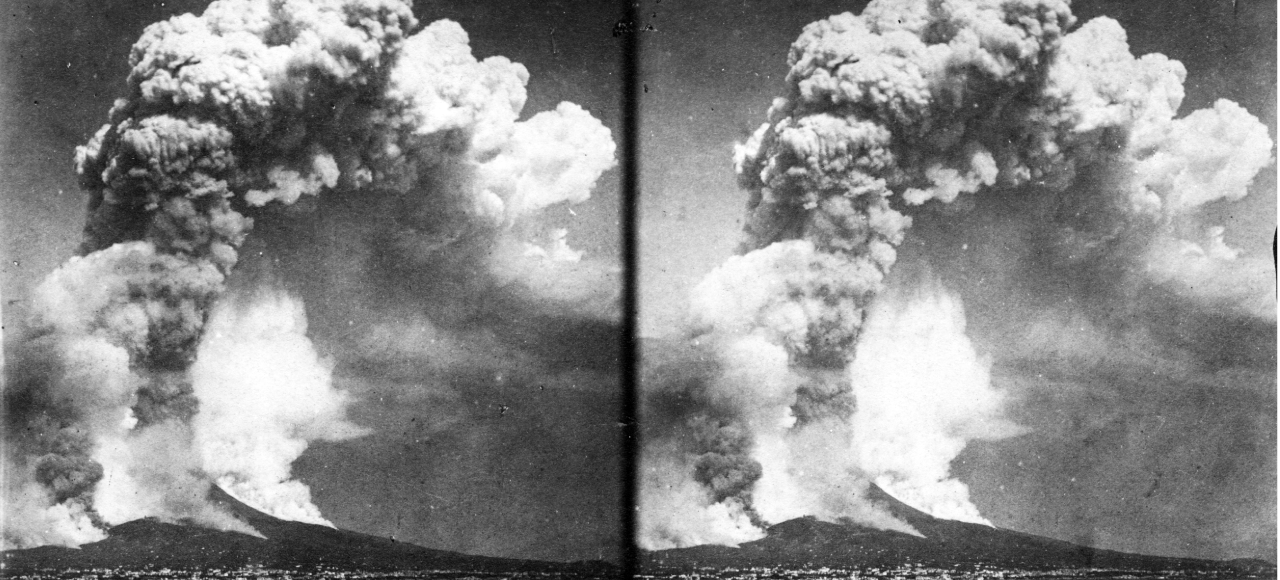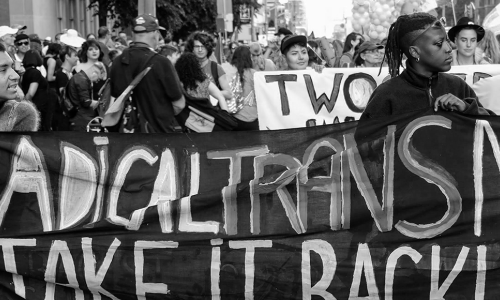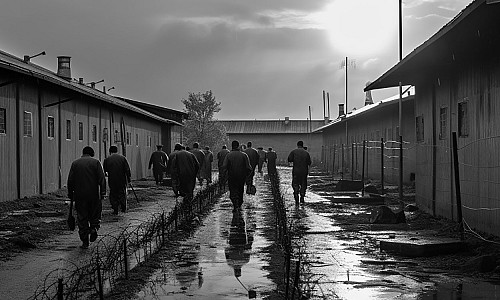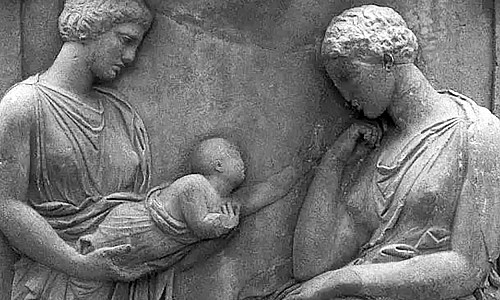Steve Clarke considers ISIS and the justification of religious violence.
In February 2014 Al Qaeda publicly severed ties with ISIS (the Islamic State in Iraq and Syria), an organisation that started out as Al Qaeda’s Iraqi subsidiary. In June 2014 ISIS renamed itself “Islamic State” and announced that the territory it controlled, in Iraq and Syria, and which it was seeking to expand, is the re-established Islamic Caliphate. By implication ISIS were declaring themselves the leaders of the global Sunni Muslim community. The manuscript of my The Justification of Religious Violence (Wiley-Blackwell) was completed in late 2013 and published in April 2014. I devoted a chapter of the book to looking at recent uses of religion to justify violence. One case study I examined was Al Qaeda’s appeals to Islam to justify violence. Unsurprisingly, given the above time line, I did not distinguish ISIS from Al Qaeda and did not provide a separate discussion of ISIS’s religious justifications for violence. Here I examine the lines of religious justification for violence offered by ISIS. These have diverged significantly from the justifications offered by Al Qaeda, even though ISIS has only been formally disassociated from Al Qaeda for a bit more than a year and a half.
Before I go on, a few general points. The first is that I will employ a common, abbreviated way of writing and use the word “justification” to refer to attempted justifications, regardless of whether or not these are successful. I will not discuss the issue of whether ISIS’s attempts to justify violence, by appealing to religion, are legitimate or not. In The Justification of Religious Violence I defend the view that arguments containing religious justifications for violence generally exemplify the same logical forms as secular arguments justifying violence, but that religion supplies additional premises for those arguments, unavailable to the secular, which are grounded in the metaphysics of religious world views. Of course these premises will only be regarded as acceptable by those who accept the required religious metaphysics. The justification of any form of violence is a controversial topic and some readers will regard the standards that we ordinarily apply to both secular and religious justifications of violence to be insufficiently strict. I set aside consideration of broad objections to the justifiability of violence.
Another issue I set aside is the issue of whether religion is a systematic cause of violence, or if religion, while often used as a pretext for violence, is not usually an actual cause of violence. In my view it is too hard to disentangle politics and religion sufficiently well to be able to determine whether religion is a systematic cause of violence or not. The religious have more conceptual resources to draw on, when they want to justify violence than do the non-religious, so it might seem tempting to conclude that, therefore, the religious will end up causing more violent acts than the non-religious. But this is just speculation. Another relevant consideration is that as well as providing conceptual resources to those who wish to justify violence, religion provides conceptual resources that are useful to opponents of violent action, and which are unavailable to the secular.
When considered as a conceptual resource for those who wish to justify violence, Islam is no more or less useful than any other major religious tradition. In The Justification of Religious Violence I look at case studies in which Christian, Buddhist, Islamic and Jewish religious doctrines have been used to justify violent acts, and I show that all of these traditions offer rich conceptual resources to those who wish to justify violence. These conceptual resources involve variations on three themes that repeatedly appear in religious justifications of violence. These are: (1) Narratives about a “cosmic war” taking place between good and evil forces, over the course of history, in which it is held to be desirable, or necessary, to contribute to the war effort on the side of the good. (2) Narratives about an afterlife in which rewards are available for those who conduct certain sorts of violent acts. In salvific religious traditions the rewards on offer are everlasting happiness, and reprieve from the threat of everlasting torment. In the Buddhist (and Hindu) tradition the available reward is reincarnation in a state that is superior to the reincarnation that would have been obtained had the approved violent acts not been conducted. (3) Specification of particular places, buildings, scriptures, rituals, relics and people as sacred; along with the authorisation of violent responses to deter or punish any act of disrespect towards, or mistreatment of, the places, items and people that are considered sacred.
Al Qaeda appeal to all three of the forms of religious justification of violence identified above. Osama bin Laden held that Al Qaeda was involved in fighting a cosmic war against evil forces, led by America, which had made “a clear declaration of war on God, His messenger and Muslims”. He saw Satan (Shaytān) as the ultimate power lurking behind the American led “Crusader-Jewish alliance”. An additional reason bin Laden had to prosecute a war on the United States was that the United States had significant numbers of troops stationed in Saudi Arabia between 1990 and 2003. To members of Al Qaeda, and many other fundamentalist Muslims, the presence of non-Muslims in territory that they regarded as sacred was an outrageous affront to their religious values. Also outrageous, in bin Laden’s eyes, was America’s promotion of democracy. To bin Laden, and other members of Al Qaeda, the only legitimate form of government is a theocracy in which God’s law (Sharia) is enforced.
Only God has the right to legislate, so by allowing its citizens to have a say in the formation of laws, a democracy effectively places those citizens at the level of God, turning them into blasphemers – a clear violation of sacred values.
Afterlife beliefs have not been of great importance in Al Qaeda’s religious justifications of violence, but they have had a role to play. Those who die in the war against America and her allies are assured of entry into Heaven (Jannah). Also, Al Qaeda go to some lengths to try to convince those who were expecting to die in the course of attacks on American interests, such as the 9/11 hijackers, that because of their motives they were technically not committing suicide. This is important in Islam because the Koran specifically prohibits suicide; and if they were to have committed suicide then they would be ineligible to enter Heaven.
ISIS does not reject any of Al Qaeda’s justifications for violence. However, there is a systematic difference between the ways in which ISIS and Al Qaeda appeal to religion to justify violence. The leadership of ISIS expound apocalyptic religious beliefs; and these are beliefs that have never found favour amongst Al Qaeda’s leaders. Like Christianity, Islam has an apocalyptic tradition and predicts a final confrontation between the forces of good and evil at the “end of days”.
There are various prophecies about the events leading up to this final confrontation in the Islamic tradition, many of which are contained in the Hadith (collected sayings of the Prophet). One line of prophecy, which ISIS consider to be particularly important, has it that the apocalypse will involve a decisive confrontation between true Muslims and an army led by “the Romans”, at a place near Dabiq, a small town in northern Syria. While bin Laden and other members of Al Qaeda envisaged an eventual confrontation between the forces of good and the forces of evil, they did not anticipate that this would happen any time soon. They saw themselves as having a religious duty to oppose America and her allies and they anticipated a long struggle, which might lead to the demise of America, and perhaps, eventually, the demise of Satan.
By contrast, ISIS see the final confrontation between Islam and its various opponents, led by Satan, as an event that will happen reasonably soon. The sense that the apocalypse is fast approaching shapes much of ISIS’s thinking and drives much of their behaviour, as others, such as Jessica Stern and J. M. Berger, the authors of ISIS: The State of Terror, and William McCants, author of the forthcoming work The ISIS Apocalypse: The History, Strategy, and Doomsday Vision of the Islamic State, have also noted. This sense also influences the lines of justifications for violence offered by ISIS. ISIS is quite open about what these are, promulgating apocalyptic justifications for violence in various places, including their free online magazine, Dabiq, which is published in English, as well as several other languages. As of mid-September 2015, 11 issues of Dabiq had been posted online.
Because ISIS expect the final confrontation with Satan to happen relatively soon, they are not nearly as focussed on opposing America as are Al Qaeda. ISIS sees it as their religious duty to oppose all of the allies of Satan, whether these are Americans, Europeans, Israelis, Shiite Muslims, or Sunni Muslims who resist the expansion of the Islamic State. They are also disinclined to accept conventional accounts of relations between international powers, and are much more inclined than Al Qaeda to see the various allies of Satan as conspiring with one another.
Dabiq persistently alerts its readership to what it sees as instances of coordinated action against the interests of the Islamic State by various combinations of America, Russia, Israel, Iran, secular Middle Eastern states, Muslim organisations considered to be apostates by ISIS, and even some Al Qaeda affiliated groups. Close future cooperation between Iran and Jewish interest groups is predicted (Dabiq #11). It is frequently emphasised that all of these opponents of the Islamic State act in the service of Satan (see Dabiq # 9, in particular).
ISIS’s worldview is explicitly Manichean. They see the world as being comprised of two camps and cite an unlikely source to help substantiate this view: George W Bush (Dabiq #7). In 2001 Bush informed the entire world that “either you are with us or you are with the terrorists”. ISIS’s only disagreement with him is about which side is good and which is evil. Because of ISIS’s Manichean and apocalyptic world view, they have a great enthusiasm for declaring other Muslims to be apostates. Indeed, according to ISIS, the very act of fighting the Islamic State is apostasy, and so sufficient to exclude one from Islam (Dabiq #10).
Historically, Islamic jihadi groups have been reluctant to declare fellow Muslims to be apostates, realising the finality of the declaration and realising that such declarations would significantly damage their prospects for future cooperation with those declared to be apostates. Because ISIS are not expecting a long struggle, and because they are inclined to view all other organisations as doing the bidding of Satan anyway, they are not at all reluctant to declare members of other Islamic organisations to be apostates. Dabiq #11 contains an article listing a rogues gallery of Islamic militants, operating in many different countries, whom ISIS consider to have fallen into “blatant apostasy”. Relatedly, ISIS see very little need to tolerate differences of opinion. They are critical of Al Qaeda’s tolerance of theological differences within Islam, and are scathing of its tolerance of Shiite Islam. They are also critical of Al Qaeda’s failure to enforce Sharia law in places where it could have been enforced (Dabiq #6).
ISIS’s apocalyptic thinking has other consequences for the justifications of religious violence they offer, which further differentiate them from Al Qaeda. Appeals to the afterlife appear much more frequently in ISIS propaganda than in any equivalent Al Qaeda writing. Anyone who kills “apostate imāms” is promised a “great reward” in the afterlife (Dabiq #7). Defenders of the frontiers of the Islamic State are promised a perpetual reward in the afterlife (Dabiq #9) and Yazidis who become slaves in the Islamic State, and who later convert to Islam, are assured that they are especially likely to gain entry to Heaven (Dabiq #4) (unfortunately for them though, conversion to Islam does not seem to lead to manumission). A preoccupation with the afterlife is understandable amongst those who believe that their chances of securing a good afterlife depend on their behaviour here on Earth, and who also believe that there is only a limited time available in which to improve their chances of securing a desirable afterlife.
The introduction of institutionalised slavery in the Islamic State was a surprise to many and has brought ISIS much negative publicity. It also further differentiated ISIS from Al Qaeda who are not known to have advocated the introduction of slavery. A motivation ISIS had for introducing slavery is that the existence of slaves is a precondition for an Islamic apocalyptic prophecy being fulfilled. One of the “signs of the Hour” is that “the slave girl gives birth to her master” (Dabiq #4). This cannot occur if there is are no slaves, and since ISIS seems to want the apocalypse to occur sooner rather than later they are motivated to do whatever they can – including introducing slavery – to enable it to occur.
Many secular Westerners will find it hard to take ISIS’s apocalyptic rhetoric seriously and may suspect that ISIS’s leadership do not take it seriously either. It is impossible for outsiders to really know if ISIS’s leaders actually do mean what they say, but we should take what they say very seriously anyway.
The leaders of other apocalyptic groups really did mean what they had been saying; and acted violently as a result. The Jonestown Massacre, the Waco siege, the sarin gas attack on the Tokyo subway, and the mass suicide of members of Heaven’s Gate all occurred in large part because the leaders of apocalyptic religious groups really did believe their own apocalyptic rhetoric. There is no good reason to suppose that the leadership of ISIS is different.
ISIS are quite open about their apocalyptic beliefs and motives for action, and it might be supposed that if we understand these then their behaviour will be easy enough to predict. But examination of the behaviour of other apocalyptic religious groups should lead us to be wary of such overconfidence. Apocalyptic religious groups that come to believe that the apocalypse is imminent are liable to react to its onset in idiosyncratic ways.
All but one of the members of Heaven’s Gate committed suicide in 1997. They believed that the battle of Armageddon was imminent and was about to lead to the destruction of the Earth. They also believed that if they swallowed lethal doses of phenobarbitals, and prepared their bodies in just the right way, then these would be collected by benevolent beings from outer space who would provide them with new, superior bodies and enable them to live “among the stars” as happy immortal aliens – the science fiction equivalent of Heaven.
Member of the Buddhist syncretist group Aum Shinrikyo launched a sarin gas attack on the Tokyo subway system in 1995. They killed twelve people and injured thousands. They did so in order to distract police investigations into their organisation long enough to enable them to prepare effectively for onset of Armageddon, which they believed was imminent, and which they planned to survive. It would have been very difficult for outsiders to have predicted the occurrence of either of these catastrophic sequences of events, even with the benefit of detailed knowledge of the respective apocalyptic beliefs and motives of Heaven’s Gate and Aum Shinrikyo.
To enable successful prediction of the behaviour of apocalyptic religious groups that come to believe that the apocalypse is imminent you would need detailed knowledge of their apocalyptic beliefs and motives, as well as detailed knowledge of the ways in which the leadership of the organisation in question were planning to respond to the apocalypse. We know that ISIS is an apocalyptic movement and we know about some of the prophecies that, they believe, foretell the occurrence of the battle of Armageddon (Malāhim) and the commencement of the apocalypse. We also know that they welcome this prospect and expect it to occur reasonably soon. As far as we can tell they are convinced that a battle against “the Romans” near Dabiq will trigger Armageddon. What we do not know is how they plan to respond to the onset of Armageddon.
Because we do not know how ISIS will react to the onset of Armageddon it would be very dangerous to do anything to promote the belief that Armageddon is imminent. It has been suggested that because ISIS’s leadership believe that a decisive battle will take place near Dabiq, Western forces should go and meet them there, and defeat a weaker opponent in a conventional battle. But we have no idea whether or not ISIS’s leadership would choose to prosecute a conventional war once they decided that that the apocalypse was upon us. The appearance of an army near Dabiq presumably would be seen by ISIS as a sign of the commencement of the apocalypse, but the apocalypse is usually understood as a global event and it is not unreasonable to expect that ISIS would react to its onset in as many places as it could around the globe.
Because they are not expecting the world to remain as it is for much longer, the leaders of ISIS are unlikely to have made effective long-term plans for the Islamic State to function as a worldly state. If left alone, while being contained, the Islamic State will probably stagnate, and disappoint its own supporters, as the prospects of victory in an Armageddon-like battle that fails to arrive. In the meantime, if the leadership of ISIS can be persuaded that what they see as signs of the impending apocalypse are not really such signs, then they will be less likely to increase the levels of violence that are already present along the borders of the Islamic State, and less likely to act in unpredictable and potentially catastrophic ways. This is not a task that this author, or any other secular Westerner, can undertake. The only people who have any realistic chance of persuading the leadership of ISIS that the apocalypse is not really approaching are Sunni Muslim theologians.
ADDENDUM
Since this article was written ISIS have conducted major terrorist attacks in Beirut, the Sinai Peninsula, and Paris. A new issue of Dabiq Magazine (#12) was posted online on November 18th, 2015. In it ISIS take credit for all these attacks, as well as other less spectacular recent attacks, and make clear that they consider that their actions are justified. No new lines of justification for violence are articulated in the new issue of Dabiq.
Steve Clarke is a Senior Research Fellow in the Centre For Applied Philosophy And Public Ethics, Charles Sturt University and Senior Research Associate of the Uehiro Centre For Practical Ethics, University Of Oxford. He is the author of The Justification Of Religious Violence and the co-editor of Religion, Intolerance And Conflict: A Scientific And Conceptual Investigation, edited By S. Clarke, R. Powell and J. Savulescu.
The author would like to thank David Coady, Jacques Rousseau and Anne Schwenkenbecher for helpful comments on a draft of this article.
You might also like...

Subscribe to The Philosophers' Magazine for exclusive content and access to 20 years of back issues.














